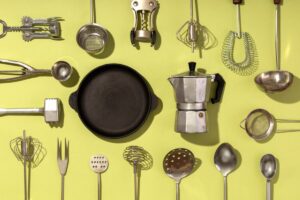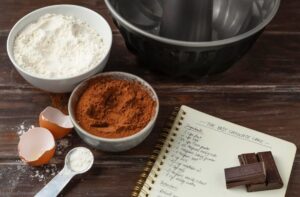The Food Blog
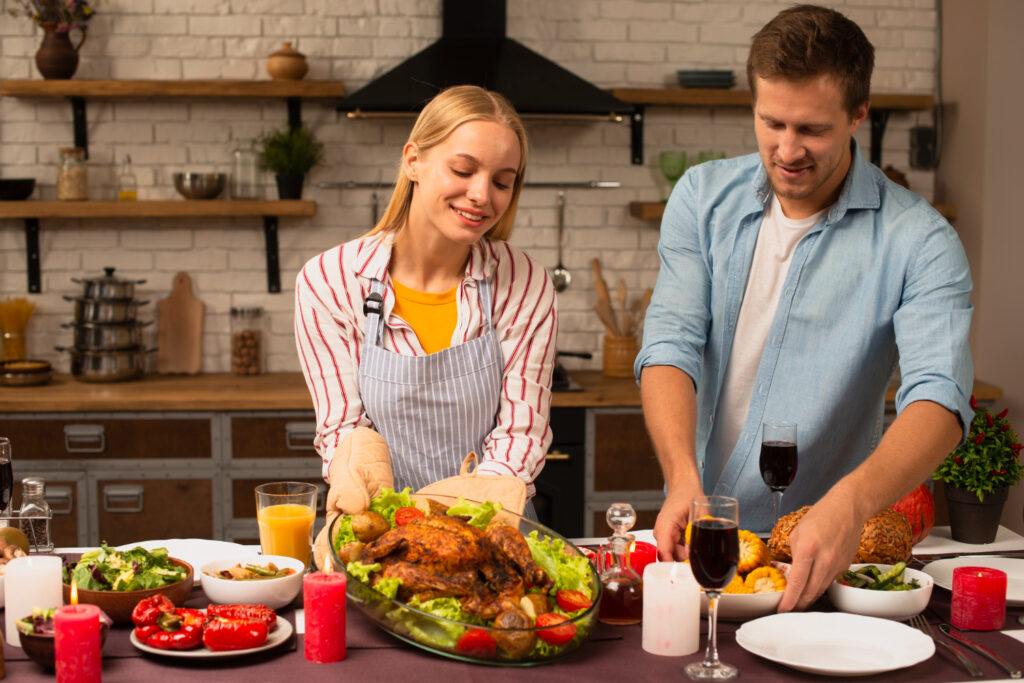
How to Batch Cook for Stress-Free Weeknight Dinners
Do you ever wish you could come home from work and have dinner ready to go? That’s where batch cooking comes in. Cooking meals in bulk saves time, cuts down on food waste, and ensures you always have something delicious on hand.
Batch cooking isn’t just for emergencies; it’s a great method for staying organised and reducing daily stress. Whether you’re a busy parent, a meal prep enthusiast, or someone who enjoys making meals ahead of time, mastering batch cooking can transform your routine.
This guide covers the essentials of batch cooking, including the best meals to prepare in advance, storage techniques, and food safety tips. By the end, you’ll be equipped to fill your fridge and freezer with home-cooked meals, making weeknight dinners effortless.
Quick Guide: Batch Cooking for Stress-Free Weeknight Dinners
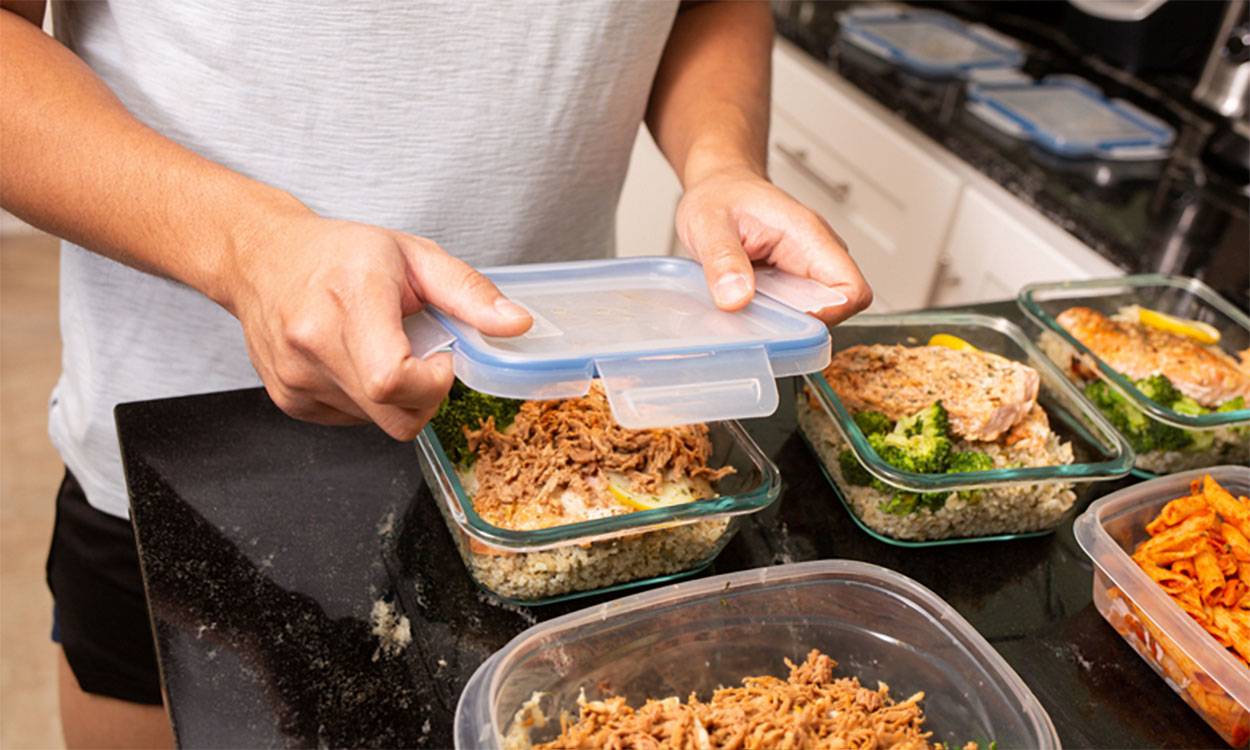
- Choose Your Meals Wisely: Focus on casseroles, soups, stews, and pasta bakes—dishes that store well and reheat beautifully.
- Prep Like a Pro: Undercook pasta and vegetables slightly to prevent mushiness. Cool meals completely before storing them to avoid condensation.
- Store Correctly: Use airtight containers or freezer bags, label each meal with the name and date, and follow the first-in, first-out method for freshness.
- Reheat With Care: Thaw meals in the fridge 24 hours before eating and reheat thoroughly. Consider adding fresh herbs or lemon juice to enhance flavours.
- Keep It Simple: Start with beginner-friendly recipes like stews, casseroles, or chilli that freeze and reheat well.
Why Batch Cooking is a Game-Changer
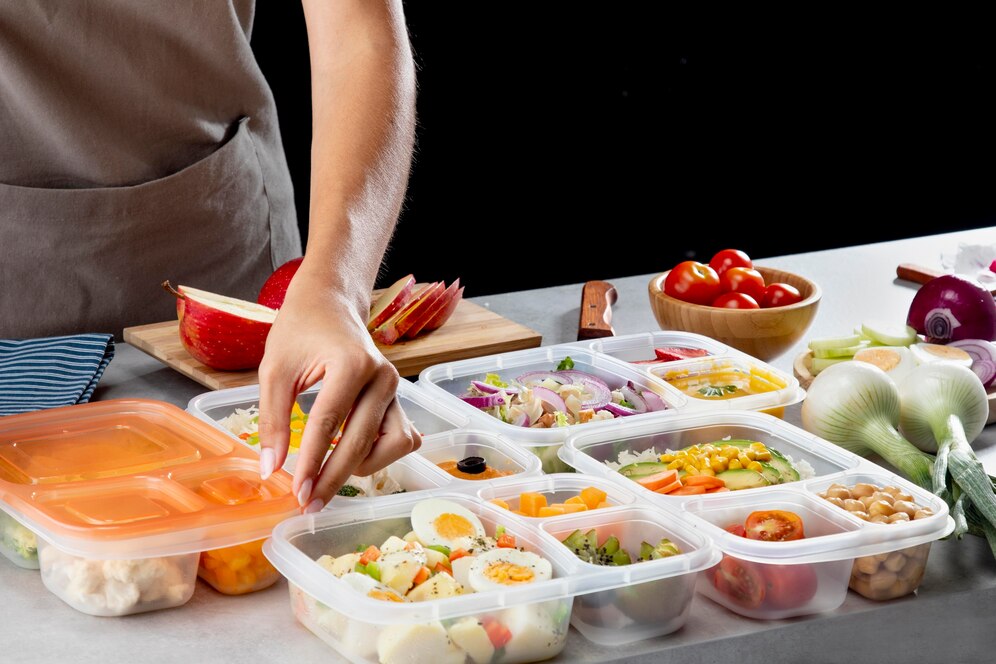
The Benefits of Batch Cooking
Before diving into the “how,” let’s explore why batch cooking is worth your time:
- Saves Time: Spend a few hours cooking once, and enjoy ready-to-eat meals all week.
- Reduces Waste: Portion meals properly to prevent leftovers from going bad.
- Saves Money: Buying ingredients in bulk and prepping ahead reduces grocery trips and impulse spending.
- Encourages Healthy Eating: Home-cooked meals help you stick to nutritional goals and avoid unhealthy takeout options.
- Provides Peace of Mind: Knowing you have meals ready reduces daily stress and decision fatigue.
Step 1: Choose the Best Meals for Batch Cooking
Not all meals are suitable for batch cooking. The best make-ahead meals typically fall into these categories:
- Casseroles: Lasagna, shepherd’s pie, and enchiladas hold up well when reheated.
- Soups and Stews: Freeze in portions for easy lunches or dinners.
- Marinated Meats: Prepping proteins with marinades infuses flavour over time.
- Pasta Bakes: Dishes like baked ziti or mac and cheese are perfect for batch cooking.
- Breakfast Options: Try breakfast burritos, frittatas, or overnight oats for easy mornings.
Pro Tip: Avoid meals with high water content, like salads or raw vegetables, as they tend to become soggy when stored.
Step 2: Prep Your Meals Like a Pro
Once you’ve selected your recipes, it’s time to start cooking. Here are some key batch cooking tips:
- Undercook Pasta and Vegetables: They’ll finish cooking when reheated, preventing mushiness.
- Cool Completely Before Storing: Prevents condensation and ice crystals from forming.
- Portion Properly: Use single servings or family-sized portions based on your needs.
- Wrap Well: Use airtight containers, freezer bags, or foil to maintain freshness.
- Label Clearly: Write the name of the dish, the date prepared, and reheating instructions.
Important Time-Saving Hack: Set aside 2-3 hours on the weekend to prep multiple meals at once.
Step 3: Store Meals Correctly for Maximum Freshness
Proper storage is key to keeping your meals fresh and tasty:
- Use Airtight Containers: Glass or BPA-free plastic containers work best.
- Remove Air from Freezer Bags: This helps prevent freezer burn.
- Stack Smart: Lay freezer bags flat for easy storage, then stack them vertically.
- First In, First Out: Rotate meals so older ones get used first.
Bonus Tip: Freeze meals in portion sizes that suit your eating habits—individual, couple-sized, or family-sized.
Step 4: Reheat with Care
Reheating properly ensures your batch-cooked meals taste just as good as when they were first made:
- Thaw Safely: Move meals to the fridge 24 hours before eating to ensure even reheating.
- Reheat Evenly: Use an oven, stovetop, or microwave, stirring dishes like soups midway through heating.
- Add Freshness: Sprinkle fresh herbs or squeeze some lemon juice on top to enhance flavours.
Quick Fix: Forgot to thaw? Many soups and casseroles can go straight from the freezer to the oven with extra cooking time.
Best Batch Cooking Recipes to Try
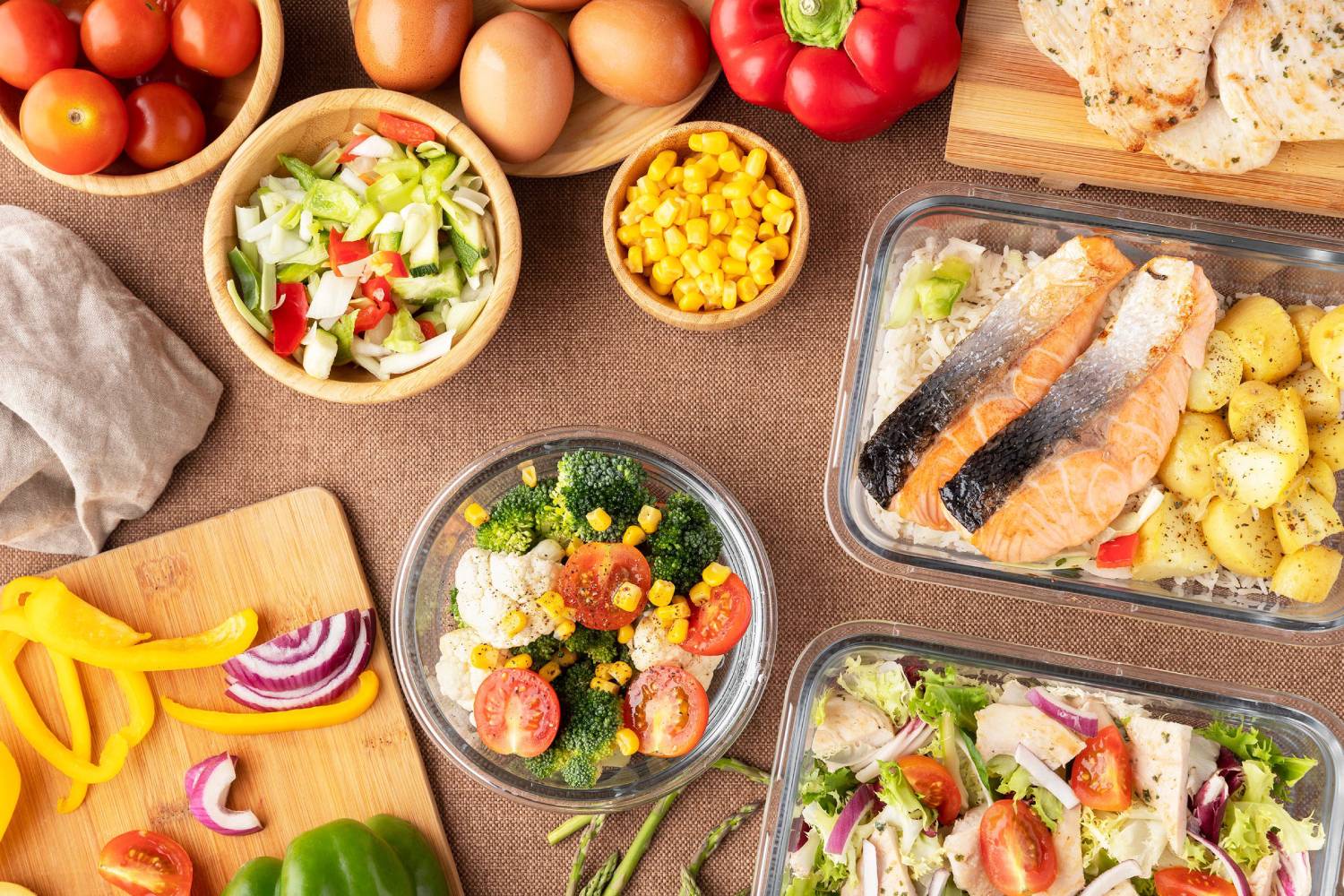
Looking for inspiration? Here are some great batch cooking ideas:
- Chicken Enchiladas: Wrap in foil and freeze before baking.
- Beef and Barley Stew: Perfect for portioning into quick lunches.
- Vegetable Lasagna: A delicious meat-free meal option.
- Pulled Pork: Great for sandwiches, tacos, or rice bowls.
- Breakfast Burritos: Wrap individually for easy grab-and-go mornings.
- Chili Con Carne: Versatile and can be served with rice, nachos, or in tacos.
- Stuffed Peppers: Freeze uncooked and bake when ready.
Inspiration Sources: Food blogs, Pinterest, and meal prep cookbooks offer endless ideas for batch cooking.
Common Mistakes and How to Avoid Them
- Overfilling Containers: Leave space for liquids to expand when freezing.
- Skipping Labels: Always label meals to avoid mystery dishes.
- Freezing the Wrong Foods: Avoid freezing high-moisture items like cucumbers or lettuce.
- Neglecting Thaw Time: Plan ahead so meals have time to thaw safely in the fridge.
Frequently Asked Questions About Batch Cooking
How long can batch-cooked meals be stored in the refrigerator?
Typically, batch-cooked meals can be stored in the refrigerator for 3-4 days. For longer storage, freezing is recommended.
What are some beginner-friendly recipes for batch cooking?
Soups, stews, casseroles, and pasta bakes are excellent starting points, as they are easy to prepare in large quantities and store well.
How can I prevent freezer burn on my batch-cooked meals?
To prevent freezer burn, ensure meals are cooled before freezing, use airtight containers or freezer bags, and remove as much air as possible before sealing.
Is batch cooking suitable for individuals with dietary restrictions?
Absolutely. Batch cooking allows for complete control over ingredients, making it easier to adhere to specific dietary needs or preferences.
Can I batch cook breakfasts and lunches as well?
Yes, batch cooking is versatile and can be applied to all meals, including breakfasts like overnight oats and lunches such as salads or grain bowls.
Batch Cook Your Meals Like a Pro
Mastering batch cooking is all about preparation and practice. It allows you to enjoy home-cooked meals without the stress of daily cooking.
Stock your fridge and freezer with these simple, prepped meals so you can spend less time in the kitchen and more time enjoying your evenings. So grab your favourite batch cooking recipes and start cooking—stress-free dinners await!
Looking for more meal prep tips? Stay tuned for upcoming posts packed with new recipes, cooking hacks, and storage tricks!



